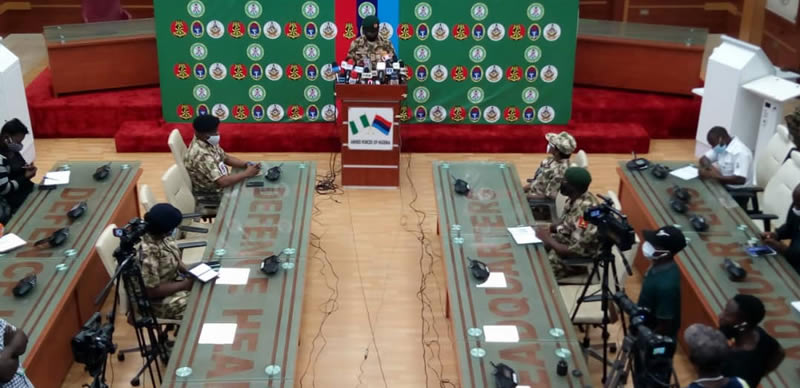Paragraph 1: Addressing Niger Republic’s Alleged MNJTF Withdrawal and Its Implications
The Defence Headquarters (DHQ) has categorically refuted reports suggesting Niger Republic’s withdrawal from the Multinational Joint Task Force (MNJTF), a crucial regional security alliance established by the Lake Chad Commission countries to combat shared security threats. The DHQ emphasized the MNJTF’s significance in maintaining regional stability and stressed the potential repercussions should any member state choose to exit. Such a withdrawal, they asserted, could compromise the collaborative synergy essential for effective counter-terrorism operations and create vulnerabilities exploitable by extremist groups. Nigeria, a key player in the MNJTF, has invested heavily in its sustainability and views the potential departure of any member as a serious concern with far-reaching consequences for regional security.
Paragraph 2: The Importance of Maintaining the MNJTF’s Integrity
The DHQ underscored the importance of preventing any member state from leaving the MNJTF, emphasizing that the interconnected nature of security challenges in the region necessitates a unified front. The withdrawal of any nation, they argued, would create a gap in operational capabilities and weaken the overall strength of the task force. This weakened state could embolden terrorist organizations and other criminal elements, undermining the collective efforts to establish peace and security within the Lake Chad Basin. The DHQ pledged to continue monitoring the situation and provide updates as needed, reaffirming their commitment to maintaining the MNJTF’s integrity.
Paragraph 3: Ongoing Counter-Terrorism Operations and the Pursuit of Bello Turji
The DHQ also addressed ongoing military operations against terrorist groups, specifically mentioning the continued pursuit of notorious terrorist leader Bello Turji. They dismissed suggestions that the military had scaled down its operations against herdsmen, terrorists, and cattle rustlers, citing recent interceptions of cattle-laden trucks and the ongoing pursuit of high-value terrorist targets. The DHQ reiterated its determination to bring Turji to justice, emphasizing that his capture or elimination is a matter of time and a top priority for the armed forces. They highlighted past successes in neutralizing other high-value targets, demonstrating the military’s continued commitment to counter-terrorism efforts.
Paragraph 4: Troop Welfare and Addressing Misinformation
The DHQ strongly refuted allegations of neglecting the welfare of injured troops, providing detailed examples of high-ranking officers visiting wounded soldiers in hospitals and at the frontline during holidays. They highlighted initiatives to provide free housing for wounded soldiers unable to return to active duty, demonstrating a commitment to their long-term well-being. The DHQ also emphasized the provision of medical evacuations abroad for soldiers requiring specialized treatment, with some receiving care in countries like Egypt, Turkey, and India. They urged the public to disregard misleading narratives aimed at discrediting the armed forces, emphasizing the importance of accurate information dissemination in the current information landscape.
Paragraph 5: Addressing the Edo Travellers Incident and Combating Misinformation
Regarding the killings of Edo travellers, the DHQ stated that the political leadership of both Edo and Kano states had taken action to address the matter. They highlighted the visit of Edo State’s political leaders to Kano State to meet with their counterparts and the victims’ families, indicating that the issue was being resolved at the political level. The DHQ assured that any individuals or groups causing further apprehension or threats would be investigated by security agencies. They also cautioned against the spread of false information, particularly concerning religious crises in northern Nigeria, urging journalists and the public to verify information before disseminating it.
Paragraph 6: Navigating the Information Age and Countering False Narratives
The DHQ acknowledged the challenges posed by the proliferation of misinformation in the current digital age, emphasizing the potential for manipulation and the creation of unrest through false narratives. They underscored the importance of critical thinking and verifying information before sharing it, particularly in the context of sensitive issues like religious crises. The DHQ reiterated its commitment to investigating credible reports and taking appropriate action against those spreading misinformation. They emphasized the importance of responsible information sharing and urged the public to rely on verified sources to avoid contributing to the spread of false narratives that could exacerbate tensions and undermine national security.


